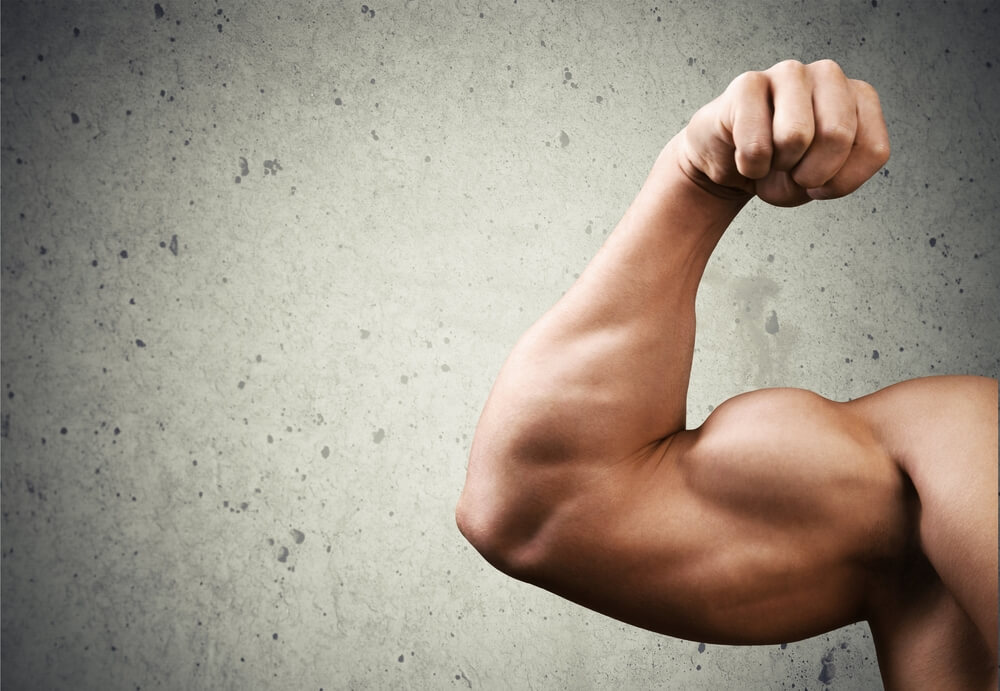
You know how to build muscle. It takes workouts. It also takes a solid diet. But, did you know that part of that diet includes certain vitamins and minerals? Which ones? Read on.
One of the biggest myths about muscle growth is that it’s easy. It isn’t. Any bodybuilder will tell you, gaining muscle mass is a bit more difficult than lifting heavy and inhaling protein. There are tiny nutrients working behind the scenes that make explosive muscle growth possible.
That’s where supplementation often enters the picture. The word supplementation is usually received with mixed feelings. It is important to note that supplements do not just refer to protein powders and fat burners. Any added nutrient you use to fill nutritional gaps is considered a supplement.
So how can you gain muscle more efficiently without consuming extra calories and spending loads of your time putting in extra hours at the gym?
The answer may surprise you.
Why?
For many, it’s thought to be outside the box.
What is it?
Try including some high-quality vitamins and minerals to your supplement stack.
But how do vitamins and minerals work to provide explosive muscle growth?
It’s actually quite easy. If you look at how macronutrients work within the body, carbs provide the body with its main source of energy, but protein and fat are what make up the tissues in the body. If you can boost the vitamins and minerals that make it easier for the body to use fat and protein, you can increase the tissues in your body (like muscles) creating noticeable muscle growth.
Before you stock your kitchen shelves with every vitamin bottle from aisle 12, let’s take a quick look at the top 10 vitamins and minerals you need for muscle growth.
Best Minerals For Muscle Growth List
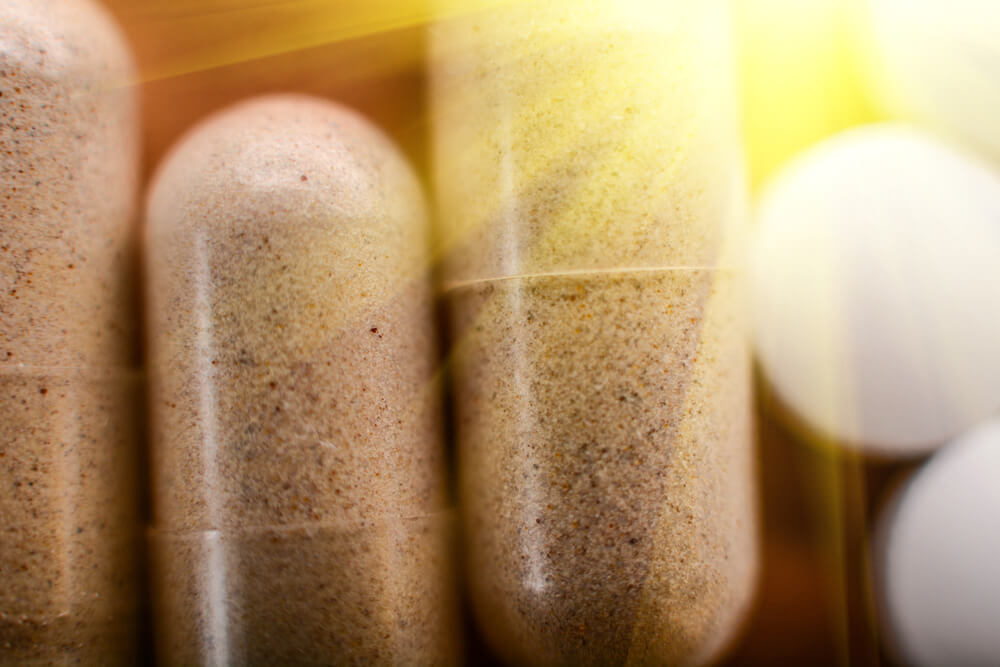 #1 Thiamine
#1 Thiamine
Thiamine is also known as vitamin B1. As a water-soluble B vitamin, it is essential for muscle growth.
Why?
It helps the body convert carbs, fat and protein into energy for the body to use. Since all of the B vitamins are water-soluble, your body does not store them. Thus, it is easy to become deficient. Thiamine deficiency can result in muscle loss so it is important to make sure you are getting a daily dose of B vitamins to keep up with the demand.
It also helps with the absorption of other B vitamins like vitamin B12. Of course, B12 plays a role in testosterone production. Increased testosterone can lead to faster muscle growth.
The body cannot make B vitamins so consumption is the only way to make sure you get an adequate daily dose. Organ meats contain one of the highest levels of thiamine. As a result, you will want to try liver, sweetbreads or get adventurous and try some tongue.
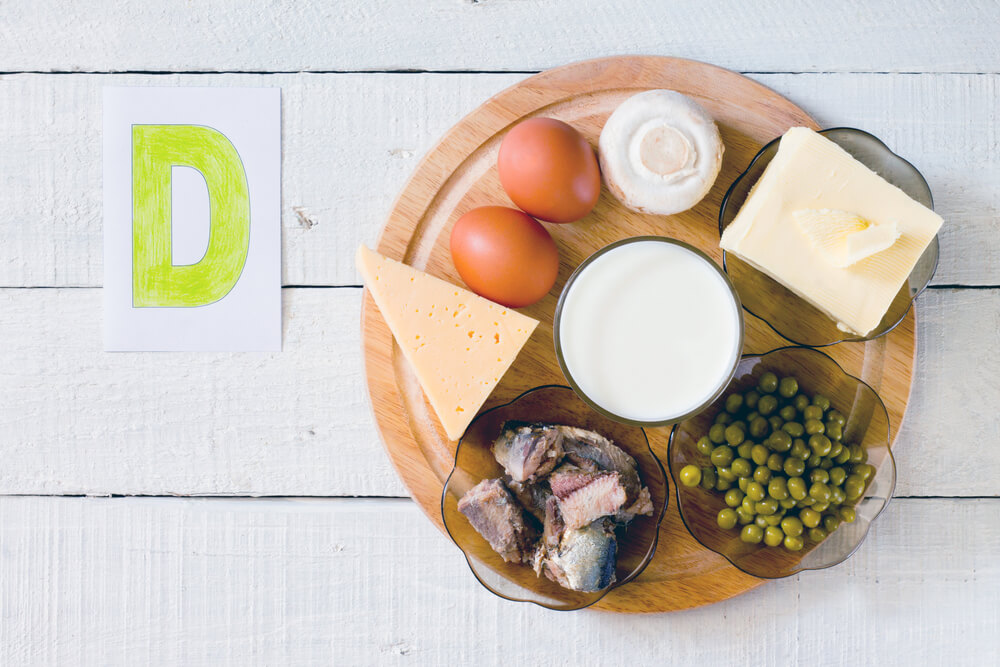
#2 Vitamin D
It’s true: This sunshine vitamin is one of the most underrated vitamins for muscle health. Vitamin D has long been known as a supporter of bone health, but studies have shown a link between lean muscle mass and vitamin D consumption. People with low levels of vitamin D tend to have more fatty muscle tissue than those with adequate levels.
Vitamin D can also help you in the gym.
Why?
It is responsible for the proper functioning of the nerves that control your muscles. Without enough vitamin D, inflammation in your body can hinder the connection between your nerves and muscles. And, when that happens, your workout can become ineffective.
Adults need 600 I/U of vitamin D a day to maintain proper levels. Just 15 minutes in the sun (sans sunscreen) can provide your body with adequate levels of vitamin D for the day. Of course, you may not want to take the risk of going out without sunscreen.
Then again, you might also live in a place where sun time is at a premium. That’s where a good vitamin D supplement can help ensure you have the right amount of vitamin D in your diet. On the other hand, if you would like to take a whole foods approach, foods high in vitamin D include tuna, salmon and egg yolks.
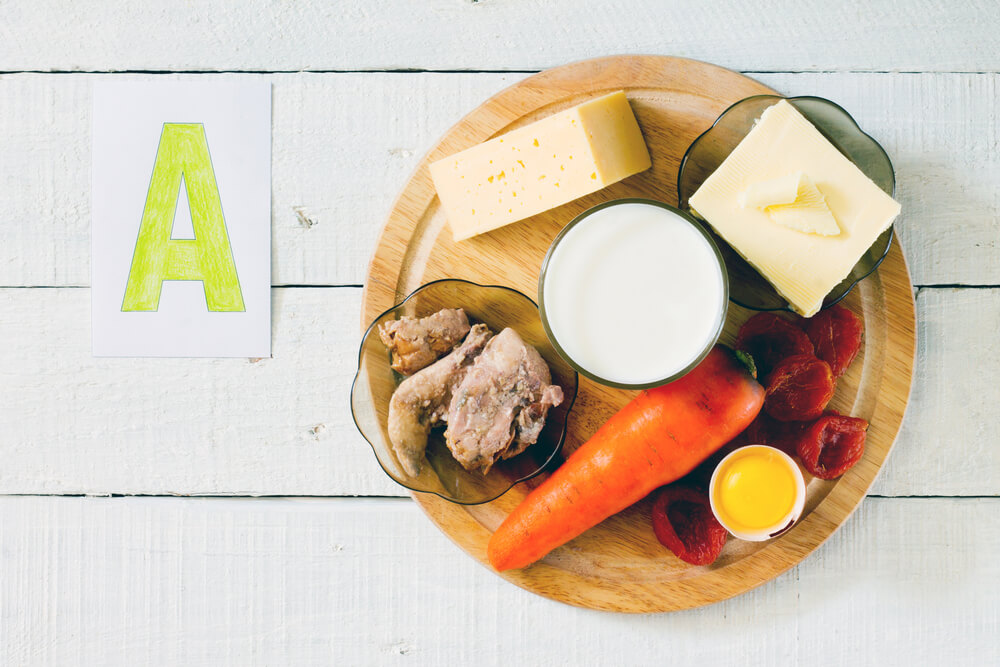
#3 Vitamin A
Vitamin A is crucial for muscle growth. In order to build strong muscles, your body needs to be able to efficiently repair torn muscles. Among its many benefits, vitamin A is responsible for the growth and repair of muscle tissue.
Unlike vitamin B, vitamin A is a fat-soluble vitamin. It is trapped in fat globules and stored in the body for long periods of time. Since it isn’t easily depleted in the body, you can overdose on too much vitamin A.
It is better to find dietary sources of vitamin A instead of using over the counter pills.
Why?
Believe it or not, large doses of vitamin A can prove toxic. A primary source of dietary vitamin A is animal liver. If your pallet does not agree with liver, you can try cheese, sweet potato, and spinach. These are all good sources of this muscle-building vitamin.
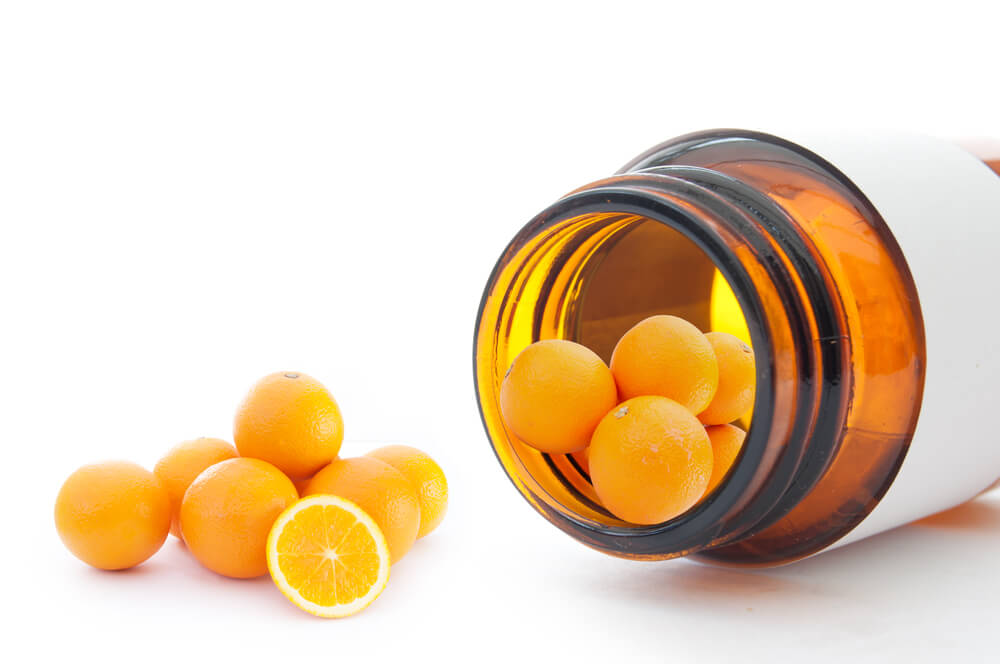
#4 Vitamin C
Vitamin C is arguably the world’s most recognized vitamin. But, brace yourself: It isn’t just the cold remedy it is known to be.
Vitamin C is so much more!
It is important for overall health including immune system strength and tissue development. Vitamin C is another water-soluble vitamin that, when consumed in excess, is secreted from the body and thus needs to be replenished often.
Protein is known as the star of the muscle synthesis show, but vitamin C plays just as important of a role.
How so?
It helps build the protein that aids in muscle growth and repair. Vitamin C is known as the healing vitamin. It can help you recover from workouts by restoring torn muscles faster.
Citrus fruits and vitamin C go hand-in-hand. That’s another well-known aspect of this amazing vitamin. But, there are other foods that contain high levels of this vitamin including bell peppers, broccoli, cauliflower, and kale.
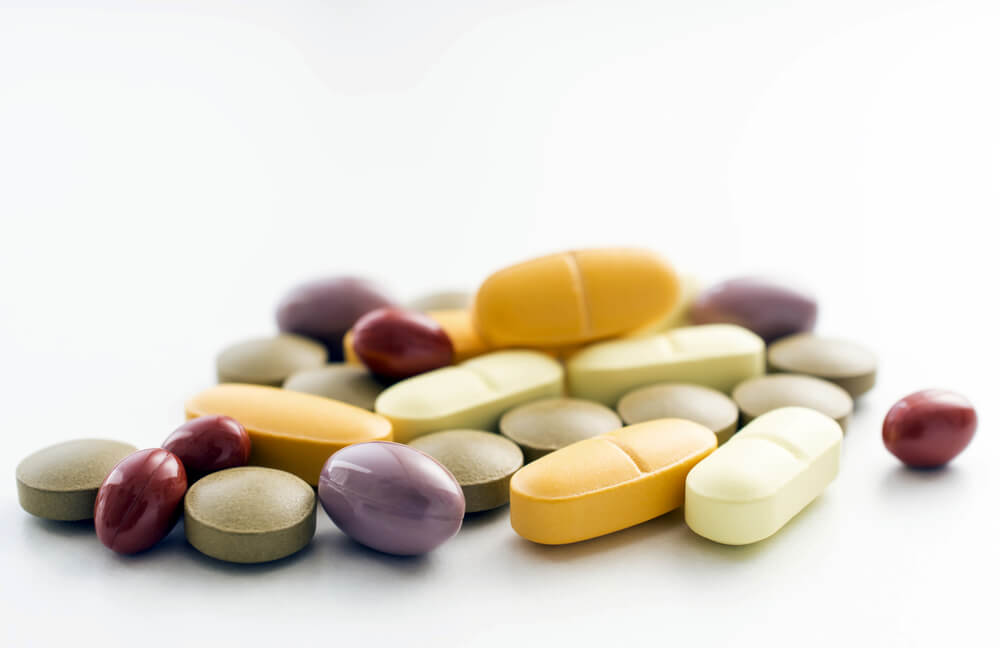
#5 Calcium
Calcium is known as the bone mineral, but it also plays a vital role in how muscles function. During strength training, muscles contract and release. This creates the tiny tears that repair themselves and make muscles larger. Calcium helps muscles contract effectively. Too little calcium and your muscles fail to contract. With that said, too much calcium can make your muscles stiff.
Milk has long been touted as the calcium king. Of course, that isn’t exactly helpful to anyone who is vegan or lactose intolerant. The good news is there are many other non-dairy foods that contain equivalent or, in some cases, more calcium than milk.
Which ones?
Try kale, sardines, almonds or bok choy.
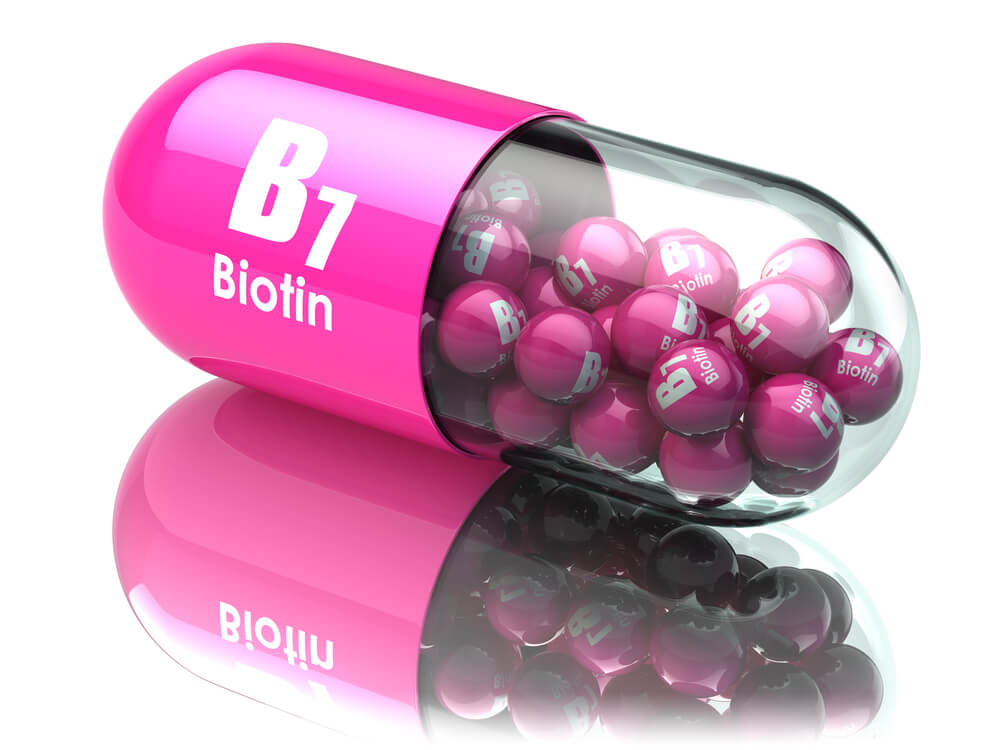
#6 Biotin
Biotin is also referred to as vitamin H. It’s famous for being the hair, skin, and nails vitamin. Even though it has been given the title of vitamin H, it technically belongs as one of the B vitamins and thus it functions similarly to B class vitamins.
Biotin plays a strong role in fat loss.
How?
It does so by helping the body to metabolize protein and fat. It turns these macronutrients into energy and thus helps keep the body lean. Increased energy means more powerful workouts. This, in turn, can only help your muscles grow.
Biotin is found in many foods but not in large quantities. Foods that naturally contain biotin are peanuts, mushrooms, egg yolks, rice, and potatoes.

#7 Magnesium
Magnesium is an amazing energy boosting mineral. It is well documented that stress and sleep deprivation are both detrimental to muscle gain. Magnesium helps the mind and body relax. That assists with muscle recovery. It also helps the body metabolize macronutrients to provide it with energy.
Magnesium has an interdependent relationship with calcium. They both need each other to thrive. Where calcium helps muscles contract, magnesium helps them relax. Magnesium is often overlooked as a supplement but it’s a necessary mineral as it helps with the absorption of calcium.
Magnesium supplements are available in both pill and powder format. As with all vitamins and minerals, there are food options that can help you reach your target levels of magnesium. Try a meal of spinach, mackerel, avocado and brown rice. This combo of foods has a healthy mix of carbs, proteins and fats. It is also high in magnesium.

#8 Iron
If you get a good amount of sleep at night and still find yourself tired and sluggish, you may want to check your iron levels.
Why?
A lack of iron can have serious side effects that can be detrimental to your health and training regimen. Iron is essential for red blood cell production and both help carry oxygen to the body. Without iron, you can find yourself lightheaded and out of breathe during your workouts.
With iron, it is important to note that if your levels get too low, food alone may not be enough to fix the issue. It is likely that you will need an iron supplement to help boost your red blood cell count. With that said, consuming a diet rich in iron can only help keep your iron at an adequate level. Animal protein is high in iron along with dark leafy greens.
Another important thing to keep in mind if you decide to take an iron supplement is that they typically cause constipation. As a result, you should look to consume high fiber foods while taking in additional iron.
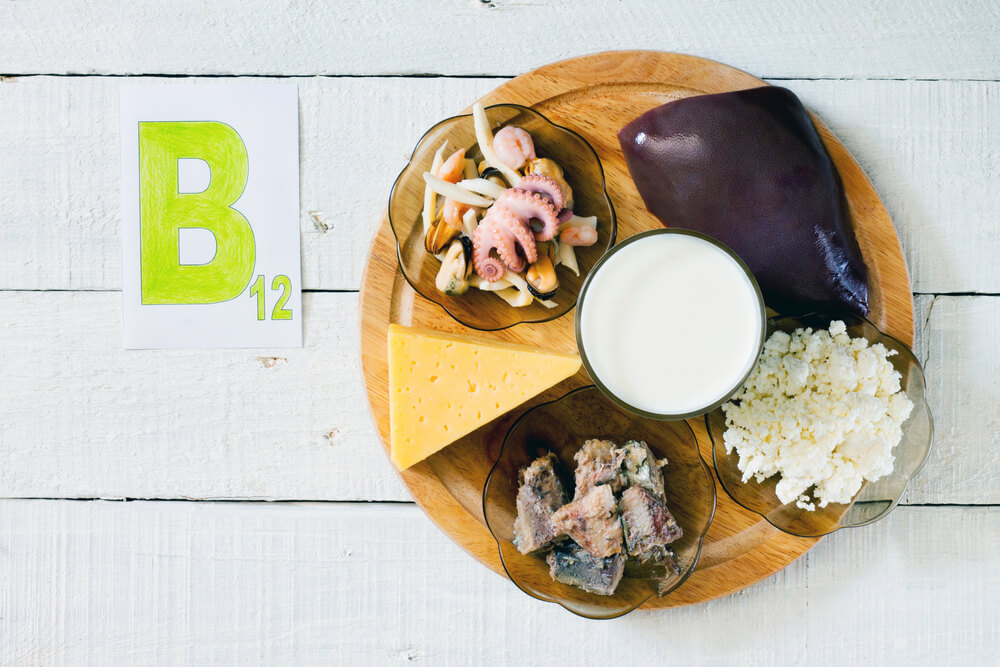
#9 Vitamin B12
While B vitamins all technically belong together, each individual B vitamin functions slightly different than the other. Vitamin B12 has been a hot topic vitamin with the rise of plant-based diets. The concern is that many vegans are not getting appropriate levels of vitamin B12 in their diet.
Why?
The reason is that B12 can only be obtained in large quantities from animal products. Nutritional yeast is a plant-based source of vitamin B12, but it is not likely enough to keep up with the demand for B12 in the body by itself.
If you’re not a vegan, it is unlikely that you are deficient in vitamin B12. The amino acids present in B12 help build and repair muscle tissue. Foods with high levels of vitamin B12 include eggs, red meat, poultry, and fish. There are also plant-based foods that are fortified with vitamin B12, like breads, and cereals, but they do not naturally occur like those found in meat.
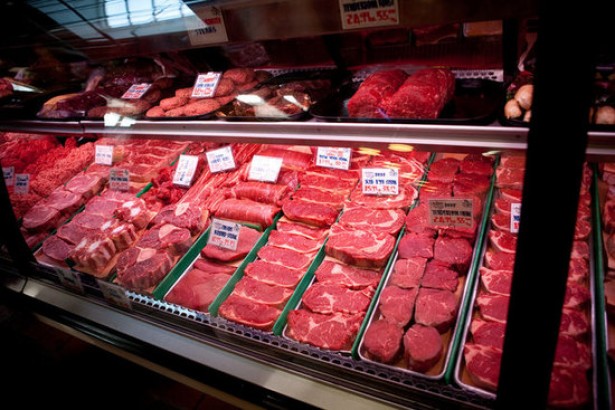
#10 Zinc
Zinc is a critical mineral in men’s health. It helps boost testosterone levels. Of course, these levels start to decline with age. Testosterone is also the hormone responsible for muscle mass. If your goal is to create large muscles, then zinc is your friend. It plays a role in sexual health as well, helping sperm production and libido. It’s no wonder that foods like oysters that are high in zinc are natural aphrodisiacs.
Oysters, beef, spinach, and cashews are all good sources of zinc. As with some of the other vitamins and minerals on this list, too much zinc can cause adverse reactions. Because of this, it is best to get your zinc consumption through a dietary method and save the supplement for a doctor to recommend.
Conclusion
Vitamins and minerals play a vital role in your overall health. Even a diet rich in whole foods can lack certain nutrients and that’s when dietary changes or supplementation is helpful.
Vitamins and minerals are meant to supplement an existing healthy diet. You should never rely solely on over-the-counter supplements to help you reach your goals. Don’t forget: Even vitamins can be harmful in large quantities. Some can lead to unwanted muscular and training results. Some can even prove fatal. Remember to consult with a doctor before self-dosing.
By Aly Tyghter
Terry
Latest posts by Terry (see all)
- How Important Are Net Carbs For Building Huge Muscle? - Apr 28, 2017
- The Matt Damon Workout Explained - Apr 27, 2017
- Watercress – Benefits And The Best Way To Consume It - Apr 26, 2017




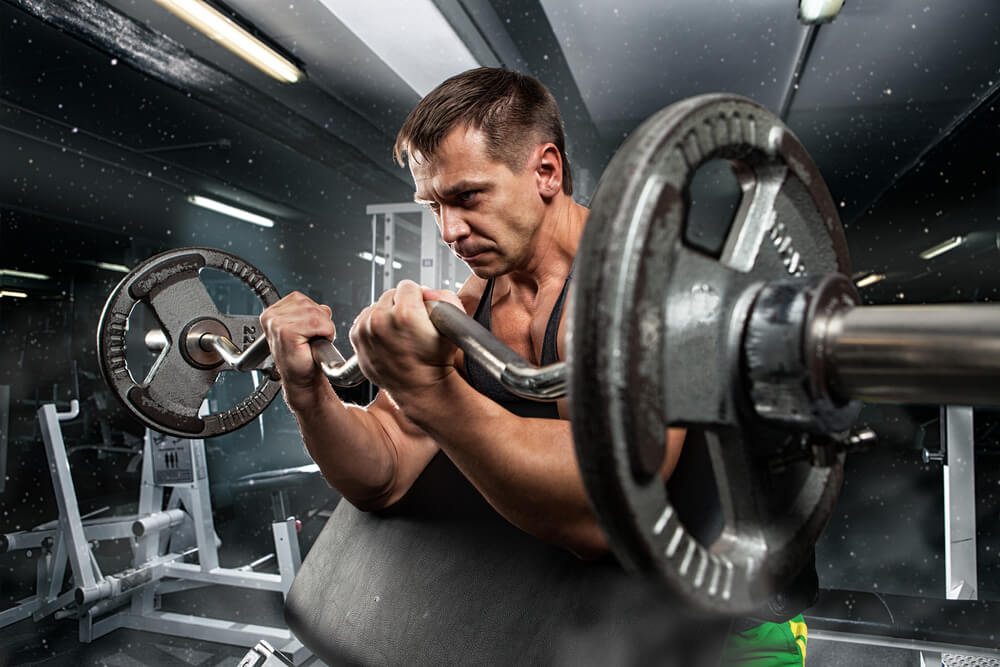




[…] best way to see massive results it to give your body time to recover. You should never directly target a muscle group two days in a row. Realistically you shouldn’t […]
[…] best way to see massive results it to give your body time to recover. You should never directly target a muscle group two days in a row. Realistically you shouldn’t […]
[…] is water-soluble and is critical for most dietary nutrition requirements while on the other hand, Vitamin E is a fat-soluble […]
[…] is water-soluble and is critical for most dietary nutrition requirements while on the other hand, Vitamin E is a fat-soluble […]
[…] is water-soluble and is critical for most dietary nutrition requirements while on the other hand, Vitamin E is a fat-soluble […]
[…] keep in mind that this isn’t applicable for all of them–the B-complex vitamins are best known for this effect. With a combination of these components and minerals, your body will […]
[…] without consuming fresh foods such as fruits and vegetables. Fresh produce contains various vitamins and minerals that are essential to keep your body […]
[…] without consuming fresh foods such as fruits and vegetables. Fresh produce contains various vitamins and minerals that are essential to keep your body […]
[…] without consuming fresh foods such as fruits and vegetables. Fresh produce contains various vitamins and minerals that are essential to keep your body […]